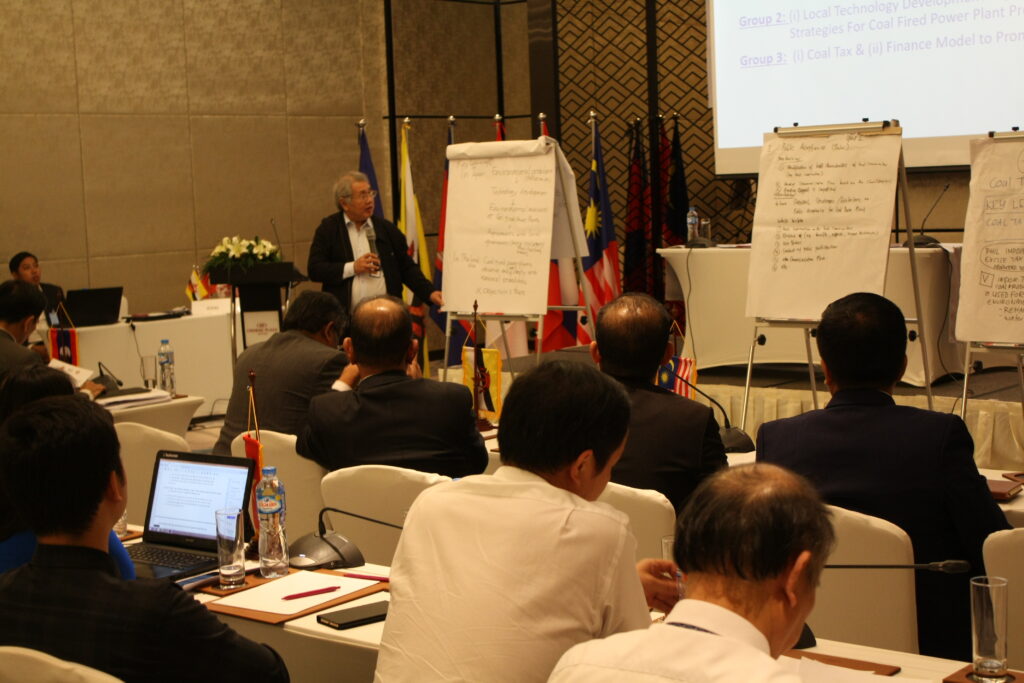Menu

The ASEAN Member States (AMS) are determined to develop and utilise cleaner coal technology (CCT) through technological exchange and capacity building among AMS, with dialogue partners (DPs), and international organisations (IOs). Coal experts from ASEAN and Japan gathered in Vientiane, Lao PDR, to exchange knowledge and expertise during the Technical Workshop on Realisation of Cleaner Coal Technology in the ASEAN region. The Workshop was organised jointly by the Ministry of Energy and Mines (MEM), Lao PDR, and ASEAN Centre for Energy (ACE). The Workshop covered six topics; Coal for Environmental Emission Control, Local Technology Development, High Efficiency Low Emission (HELE) Technology, Coal Taxation, Coal Financial Model, and Public Acceptance Strategies for Coal-Fired Power Plants (CFPP). The AMS, in collaboration with DPs, IOs, and ACE, have expressed their aspirations to cooperate in driving cleaner coal initiatives to mitigate climate change, to enhance regional energy security and to help achieve the goals of the Paris Agreement.
During his opening speech, Dr. Simone Phichith, Director General of Research Institute of Energy and Mines, MME, Lao PDR, mentioned that Lao PDR along with other AMS and DPs/IOs are fully supporting the development of CCT and strongly recommended to regularly conduct capacity building activities to support the wider deployment and utilisation of CCT in the AMS.
“This workshop provides a new perspective on advancing CCT development and utilisation for the ASEAN policymakers who see the great potential to fulfil the growing energy demand with affordable and cleaner coal technologies in foreseeable future,” said Dr. Sanjayan Velautham, ACE Executive Director.
ASEAN is a major coal producing region. According to the 5th ASEAN Energy Outlook released by ACE last year, it was indicated that ASEAN will produce more coal and the region has a net surplus of coal production until 2040. In 2015, coal production was 434 Mtce and projected to be 487 Mtce by 2040 with Indonesia producing nearly 90 percent while Vietnam 7 percent.
The region’s primary energy consumption will grow at 3.6 percent per annum until 2040, resulting in a corresponding 2.4 times increase in CO2 emissions. This is due largely to the projected 7 percent of annual escalation of coal consumption.
Compared to the other countries and regions such as China, Japan, and EU, in terms of emission standards, ASEAN has the least stringent standards. In this regard, the Workshop recommended to the AMS to establish ASEAN Emission Standard. The Workshop also recommended to develop regional strategies on public acceptance for coal-fired power plants. Finally, the participants also recommended to the AMS to influence policymakers on the importance of tax policy stability through high-level policy dialogues. (RAP. Featured photo credit: MEM, Lao PDR)
